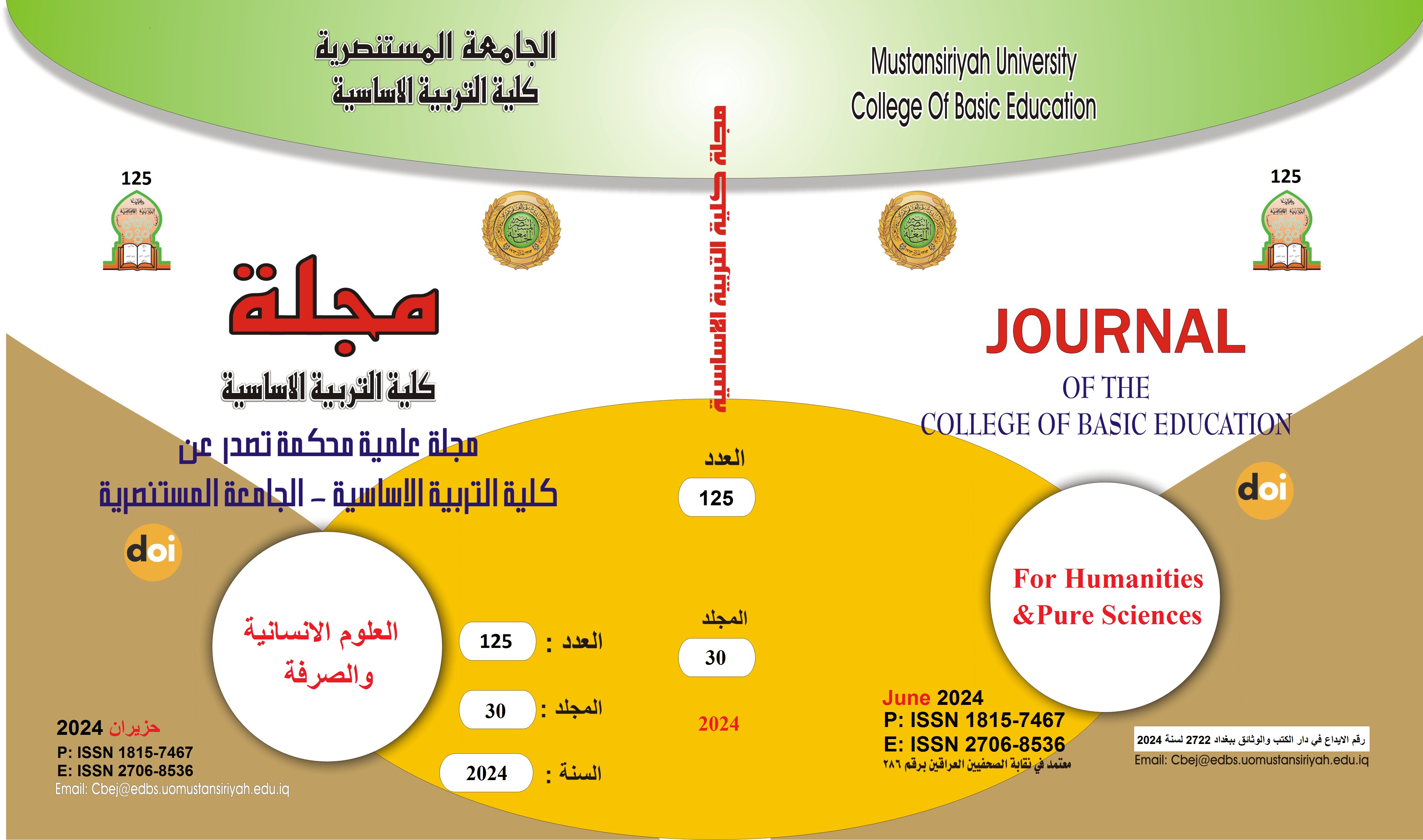The effect of the Appleton model on curiosity among fifth-grade primary school students in science
Main Article Content
Abstract
He research aims to identify the impact of the (Appleton) model on the motivation of fifth grade primary students towards science, and to verify the aim of the research, the following null hypothesis was formulated:
1- There is no statistically significant difference at the level (0.05) between the mean scores of the students of the experimental group who will study according to the (Appleton) model and the average scores of the students of the control group who will study according to the usual method in the measure of motivation towards learning science.
The experimental design with partial control was chosen for the experimental and control groups with a post-test for the motivation scale.
The research community represented the fifth grade primary school students in Mother of the Believers Primary School for Boys, affiliated to the Second Directorate of Education of Baghdad Al-Karkh, which was chosen randomly, as they numbered (64) students distributed into two divisions (A, B), and by simple random assignment, Division (B) represented the experimental group The number is (33) students, and the (A) division represented the control group, which numbered (31) students, and after excluding the (4) students who failed, by (3) a student from Division (B) and (1) a student from Division (A) The number of students in the experimental group became (30) and the number of students in the control group (30).
A tool was prepared to measure motivation, where (20) items were formulated for the purpose of the post-test. The researcher developed two gradual alternatives to answer the items, which are (no, yes) in a manner appropriate to the age group. The validity of the tool was verified by presenting them to a group of specialists and arbitrators. Statistical analysis of the items of the scale (the relationship of the score of the item with the total score of the scale, the power of distinguishing the item), and the stability of the scale was calculated using the internal consistency method by adopting the (Alpha Cro Nabach) equation.
fter completing the application of the experiment, a test of the motivation scale was conducted on the students of the research sample (the experimental group and the control group), and the data (results of the research) were analyzed statistically based on the statistical bag (spss). The students of the control group who studied according to the usual method in the motivation scale, with statistical significance and a large effect size, and in the light of the research results, the researcher recommends using the (Appleton) model in teaching as an alternative to the usual method, and proposes a number of suggestions.
Article Details

This work is licensed under a Creative Commons Attribution-ShareAlike 4.0 International License.
